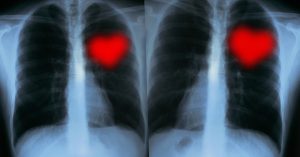Stress and Heart Disease: What You Can Do to Improve Your Heart Health
Related: Identifying Women’s Heart Attack Symptoms
How someone copes with stress can also have a negative impact on their heart health. Smoking, drinking alcohol, eating poorly, and being inactive are all common ways of dealing with stress, but they also lead to high blood pressure and damaged arteries. Overcoming stress and preventing heart disease requires a more permanent solution.
• Exercising regularly
• Quitting smoking
• Reducing alcohol consumption
• Sleeping regularly
• Eating Healthily
Stress can also be reduced through relaxation techniques, such as yoga and meditation. Alternatively, a mental health professional can teach a person to better control their body’s response to stress. It’s important to find the stress reduction technique that works best for you. Related: 5 Reasons to Undergo a Stress Test
The content, views, and opinions communicated on this website do not represent the views of Ascent Cardiology Group. Reliance on any information provided by this website is solely at your own risk. Although this website contains links to other medical websites, this is strictly for informational purposes. Ascent Cardiology Group is not responsible nor do they approve of the content featured on any third party linked websites referenced on this website.

Stress and Heart Disease: What You Can Do to Improve Your Heart Health
Working long hours, filling up free time, and taking on additional responsibilities is a way of life for Type A

What is Nuclear Cardiology?
Nuclear cardiology is a subspeciality of general cardiology that involves the use of radioactive substances and advanced medical imaging modalities

Coronary Heart Disease: What Is It and How Is It Treated?
In addition to being the most common type of heart disease, coronary heart disease is the deadliest. In fact, it’s
What is Nuclear Cardiology?
In this short article, we’ll provide a brief overview on common nuclear cardiology procedures and how they are used to measure and document the functioning of the heart and its related structures. If you’re looking for a cardiologist in Tampa Bay, look no further than Sachin Diwadkar, M.D., with Ascent Cardiology Group who is board certified in nuclear cardiology by the Council for the Certification of Cardiovascular Imaging (CCCVI) and CBNC.
During MPI, a small amount of an imaging agent called a radioactive tracer is injected intravenously into the bloodstream during rest and during exercise or chemical stress. The exercise can be in the form of walking on a treadmill or riding a stationary bicycle, whereas the chemical stress will be a drug, such as adenosine or dipyridamole. Typically, two scans are taken — one at rest and one in which the agent is injected during exercise or chemical stress. On the scan, the doctor is able to determine which areas of the heart are healthy because those areas would have absorbed the tracer. Any areas that didn’t absorb the tracer can be considered damaged, or lacking in good blood flow.
Related: Everything You Need to Know About Stress Tests
Cardiac positron emission tomography/computed axial tomography (PET-CT) is a variation of this test in which additional images and measurements are taken, including structural images of your arteries, a calcium score, and a measurement of blood flow to your heart muscle. Both SPECT and PET-CT tests are effective in predicting whether or not you would benefit from additional procedures, evaluating blood supply to damaged areas of the heart, and assessing whether you have coronary artery disease.
Related: What a Stress Test Can Say About Your Heart Health
Dr. Diwadkar from Ascent Cardiology Group can vouch for the high rates of success of nuclear cardiology in the diagnosis and treatment of coronary artery disease. Any one of the noninvasive techniques listed above, as well as a number of others, can be used to assess myocardial blood flow, evaluate the heart’s ability to pump blood, and visualize the size and location of a previous heart attack. To learn more, please contact us today.
The content, views, and opinions communicated on this website do not represent the views of Ascent Cardiology Group. Reliance on any information provided by this website is solely at your own risk. Although this website contains links to other medical websites, this is strictly for informational purposes. Ascent Cardiology Group is not responsible nor do they approve of the content featured on any third party linked websites referenced on this website.

Stress and Heart Disease: What You Can Do to Improve Your Heart Health
Working long hours, filling up free time, and taking on additional responsibilities is a way of life for Type A

What is Nuclear Cardiology?
Nuclear cardiology is a subspeciality of general cardiology that involves the use of radioactive substances and advanced medical imaging modalities

Coronary Heart Disease: What Is It and How Is It Treated?
In addition to being the most common type of heart disease, coronary heart disease is the deadliest. In fact, it’s